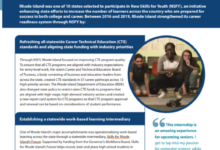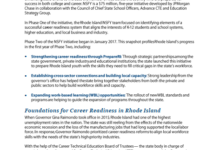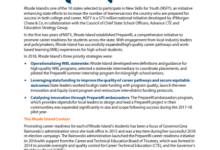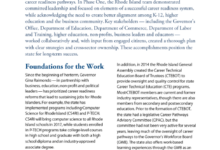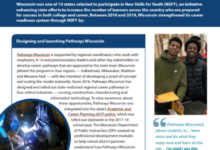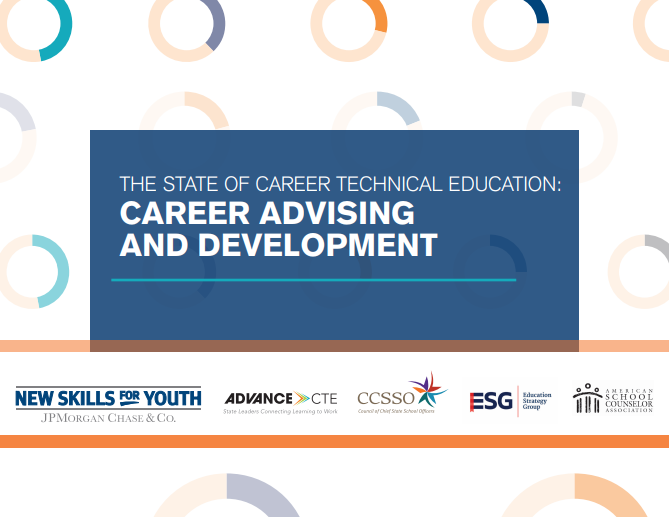Career advising and development is an increasingly prevalent topic in policy conversations, but too often only focuses on high school-level strategies. Learners should see a clear line through their education from career awareness to exploration to planning, and this can only occur if strategies and initiatives are aligned across grade levels and policy initiatives. Advance CTE partnered with the American School Counselor Association to conduct research with State CTE Directors to find out what’s working, and what isn’t, at the state and local levels.
The report finds that, across the board, states are not overly confident in the effectiveness of their career advising and development systems. Fifty-eight percent believe they are only somewhat effectively serving K-12 students, and 55 percent believe they are either only somewhat effective or not effective at serving postsecondary CTE students. And while school counselors who connect students with CTE coursework and career pathways find it an effective career advising and development strategy, relatively few are able to make these connections.
The report makes the following policy recommendations:
- Provide more effective professional development and resources to school counselors and establish feedback loops to ensure that the professional advising and development is having its intended impact.
- Ensure that career advising and development is a school- and community-wide effort, with effective coordination between school counselors and school administration and active participation from classroom instructors and community organizations.
- Explore partnerships between secondary and postsecondary systems and institutions to both gather more data on existing strategies and implement new strategies as appropriate, including collaborating with postsecondary student success teams to incorporate career advising and development strategies.
- Examine and improve current career advising and development strategies so that they are all part of one broad, cohesive strategy designed to guide all learners effectively to the careers of their choice.

